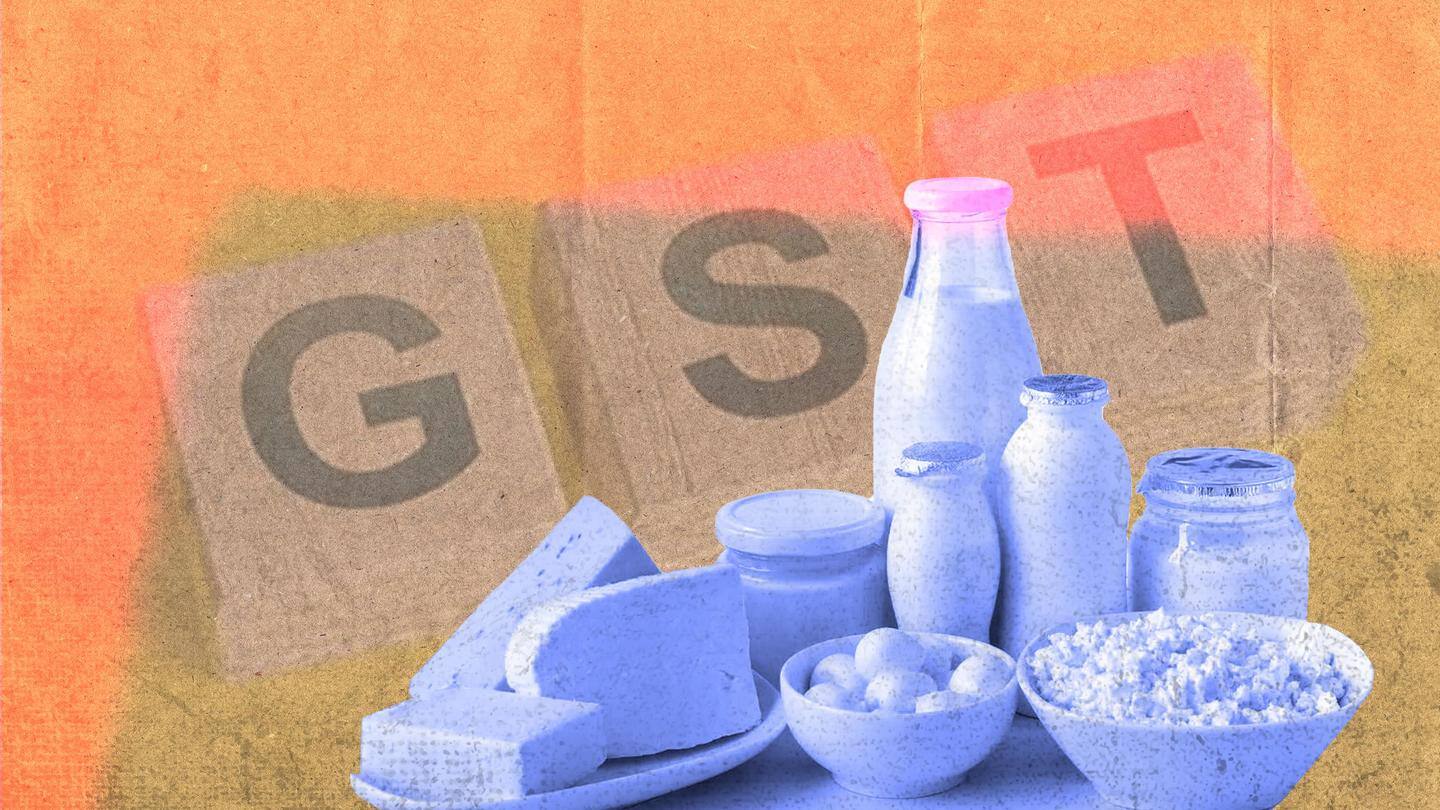
New GST rule: What gets cheaper, what's costlier?
What's the story
With the average man already suffering from rising inflation, the Goods and Services Tax (GST) Council's decision to raise rates on some products and services, as well as bring additional things under its purview, is expected to exacerbate the situation. The decisions were taken at the 47th council meeting, which began on Tuesday in Chandigarh and was chaired by Union Finance Minister Nirmala Sitharaman.
Costlier
What will become expensive?
As per the new order, unbranded but pre-packaged curd, lassi, buttermilk, food products, cereals, and so on have been brought into the GST net from the exemption list. It said the 18% GST will be levied on bank cheque books/loose leaf checks and 12% on maps, atlases, and globes from July 18. Similarly, ink for writing, printing, or drawing will likewise become more expensive.
Cheaper
What items will become cheaper?
On the other hand, the GST rates on medical items like ostomy and orthopedic appliances have come down to 5% from 12%. Similarly, the GST for transport of goods and passengers by ropeway is down to 5% from 18% and the renting of truck or goods carriage where the cost of fuel is included brought down to 12% from the existing 18%.
GST
GST increases from 12% to 18% on some items
The other items for which GST rates have been increased from 12% to 18% are printing, writing ink; knives with cutting blades, paper knives, pencil sharpeners, and blades. The same rate now applies for spoons, forks, ladles, skimmers, and cake servers. Similarly, for items like power-driven pumps such as centrifugal pumps, deep tube-well turbine pumps, submersible pumps; bicycle pumps the GST is now 18%.
Details
GST increases dramatically on some items
The rate on machines for cleaning and grading seed, grains, milling, or the working of cereals, etc. GST goes up from 5% to 18%. Similarly, for solar water heaters and systems, and different leather products GST is increase to 12%. LED lamps and fixtures, their metal printed circuits board, and drawing and marking instruments move up from 12% to 18%.
Service sector
Tax rates raised in service industry too
Rates have been increased in the service sector as well. The services include processing of hides, skins, and leather, leather goods and footwear, manufacture of clay bricks, and works contracts for roads, bridges, railways, metro, effluent treatment plants, crematoriums, and others. The concessional rates for electronic waste, petroleum, and coal bed methane also been increased.
Health and hospitality
What is current situation in health and hospitality sectors?
Hotel accommodation, priced up to Rs. 1,000 per day, shall be taxed at 12% and hospital rooms (excluding ICU) over Rs. 5,000 per day per patient shall be taxed at 5% without the input tax credit. Tax exemption on training or coaching in recreational activities relating to arts or culture or sports will be limited to services supplied by an individual.
No exemptions
Tax exemption withdrawn
The tax exemption has been withdrawn on the transportation by rail, equipment, storage or warehousing of commodities, and fumigation in a warehouse of agricultural produce. Similarly, services by RBI, IRDA, SEBI, FSSAI, and GSTN have been brought under GST purview. Also, renting out of a residential dwelling, and services provided by the cord blood banks are now in the GST net.